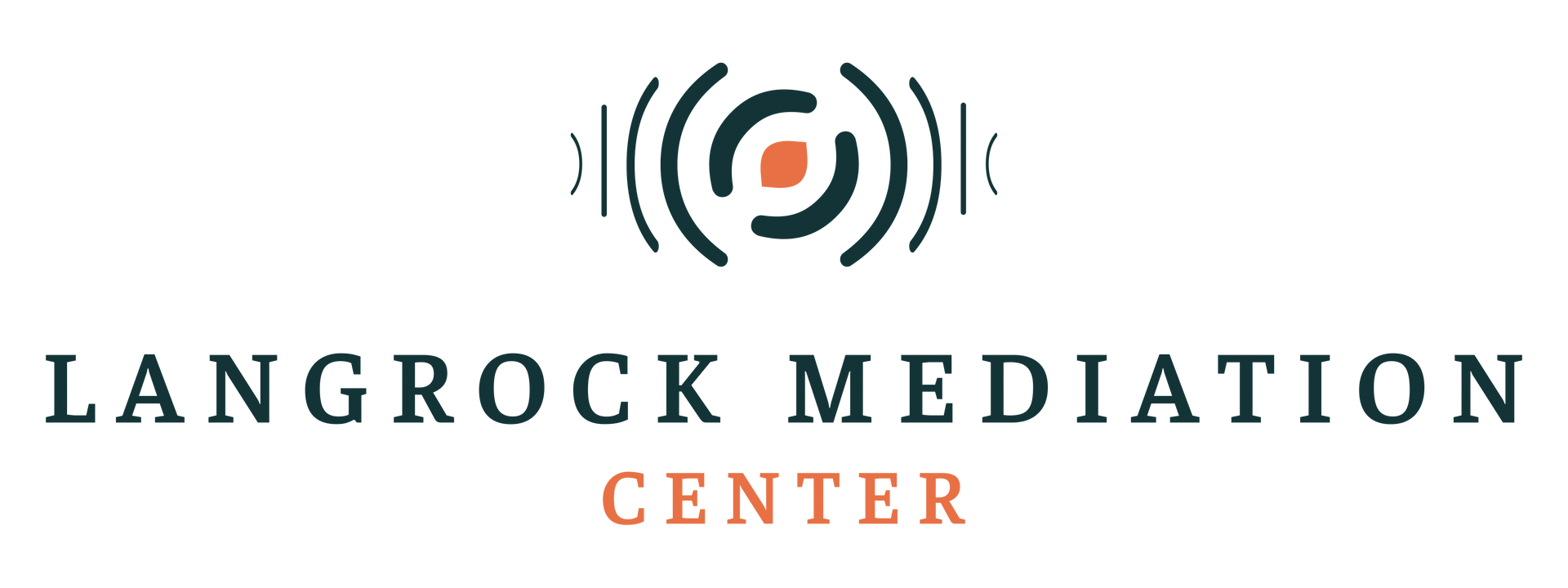How Mediation Can Benefit Families During Divorce
Divorce isn’t easy. For many, it brings emotional challenges and difficult decisions that can affect the entire family. In Vermont, as anywhere, couples facing divorce often feel overwhelmed by traditional legal processes, which can seem adversarial and impersonal. That’s where mediation comes in—a compassionate and cooperative approach to divorce that prioritizes mutual understanding and agreement. At Langrock Mediation, we specialize in helping families handle divorce with respect, clarity, and a focus on the future.
Understanding Divorce Mediation
Mediation is a voluntary process where both parties in a divorce work with a neutral third-party mediator to reach agreements on essential aspects like child custody, property division, and financial support. Unlike litigation, mediation is not about "winning" or "losing." Instead, it centers on collaboration, with both parties working toward mutually beneficial solutions.
Mediators do not take sides. Their role is to facilitate communication, help identify each party’s concerns, and guide the couple to an agreement that respects both their needs and interests. This focus on balance and cooperation often leads to less contentious outcomes, which can have a significant positive impact on everyone involved.
The Advantages of Mediation Over Litigation
While litigation has traditionally been the go-to route for divorce, mediation is steadily gaining popularity due to its numerous benefits. Here are some key reasons why mediation can be a more effective and compassionate choice:
- Cost-Effective — Courtroom litigation is costly. Attorney fees, court fees, and expert witness fees can quickly add up. Mediation, on the other hand, is often more affordable because it typically requires fewer sessions and avoids the prolonged back-and-forth common in court proceedings.
- Time-Saving — Court schedules can lead to long delays, and a contentious divorce trial can drag on for months or even years. Mediation, however, allows couples to work out solutions on their own timeline. Many couples complete mediation within a few weeks or months, providing quicker resolutions and a faster path to new beginnings.
- Greater Control and Flexibility — In mediation, the couple has the opportunity to shape the outcome of their divorce, ensuring it aligns with their unique needs and values. This control is empowering, especially when it comes to sensitive matters like co-parenting arrangements, where couples can tailor a plan that works best for their family dynamic. Courts, by contrast, often impose standard solutions that may not be well-suited to the individual family.
- Preserving Relationships — For couples with children, maintaining a civil, functional relationship post-divorce is critical. Mediation allows for open communication and collaboration, encouraging a respectful co-parenting dynamic. This process helps parents stay focused on the best interests of their children and sets the stage for a healthier long-term family structure.
Key Issues Addressed in Divorce Mediation
In mediation, couples discuss and resolve a range of issues critical to the divorce process, such as:
- Child Custody and Parenting Plans — One of the most challenging aspects of divorce is creating a co-parenting arrangement that benefits the children. In mediation, parents can work together to design a parenting plan that fits their schedules and prioritizes the well-being of their children.
- Division of Property and Assets — Mediation provides a structured environment for couples to discuss how they will divide their assets and debts. Rather than relying on a judge to make these decisions, couples can reach an agreement that feels fair and equitable.
- Spousal Support — Determining spousal support, if necessary, is another aspect of divorce mediation. Through mediation, couples can negotiate support terms that meet their individual needs and financial situations.
- Child Support — If children are involved, mediation can also address the terms of child support, ensuring the financial needs of the children are met in a manner both parents can agree upon.
How Mediation Benefits Children During Divorce
The impact of divorce on children can be significant, and how parents handle their separation can influence their children’s emotional well-being for years to come. Mediation is widely recognized as a more child-friendly approach to divorce, as it encourages cooperation and minimizes conflict. Children benefit from seeing their parents work together, creating a sense of stability despite the changes they’re experiencing.
Mediation also allows parents to develop custom co-parenting plans that account for each parent’s schedule and the child’s needs. By prioritizing open communication, mediation can help parents create a harmonious family environment that continues post-divorce, making the transition easier for children.
Preparing for Divorce Mediation
Before entering mediation, it’s important for each party to gather necessary financial documents, consider their individual needs, and come with an open mind. Being prepared can help streamline the process and lead to more productive discussions.
Couples may also consider creating a list of topics they would like to address, such as holiday schedules for co-parenting, plans for retirement accounts, or who will stay in the family home. Preparation helps couples focus on solutions rather than getting caught up in the past.
Choosing Mediation for a Positive Future
Divorce can be a challenging journey, but mediation offers a path that is kinder, faster, and often more constructive than traditional litigation. By focusing on open communication and mutual respect, mediation allows couples to build agreements that work for everyone, especially their children. Families who choose mediation are often better equipped to maintain positive relationships, adapt to new family structures, and move forward confidently.
If you’re facing a divorce and want a process that minimizes conflict and maximizes collaboration, contact Langrock Mediation. We are here to answer your questions and help you explore the many benefits of mediation. Reach out today to learn how we can support you in creating a peaceful and balanced resolution for your family.



